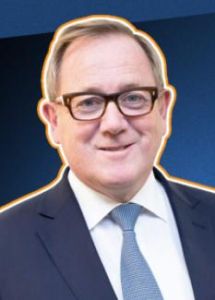Join getAbstract to access the summary!

Join getAbstract to access the summary!
Mark Dixon and Jacob Morgan
Why the Future of Work Is Hybrid Work
The Future of Work podcast
Jacob Morgan, 2021
What's inside?
Learn why workers around the world are demanding hybrid work arrangements – and employers are agreeing.
Recommendation
International Workplace Group (IWG, formerly Regus) is the world’s leading provider of flexible workspace solutions – and the company is experiencing rapid growth globally as companies commit to alternate work arrangements. In this episode of the Future of Work podcast, host Jacob Morgan talks with IWG CEO Mark Dixon about what work will look like after the COVID-19 pandemic, the advantages of hybrid work arrangements for employers – and why people will still need to spend some time at the office. Executives and human resources professionals will appreciate Dixon’s valuable insights.
Summary
About the Podcast
Mark Dixon is the founder and CEO of International Workplace Group, the world’s largest provider of flexible workspace solutions. Futurist Jacob Morgan is founder of the Future of Work University.





























Comment on this summary